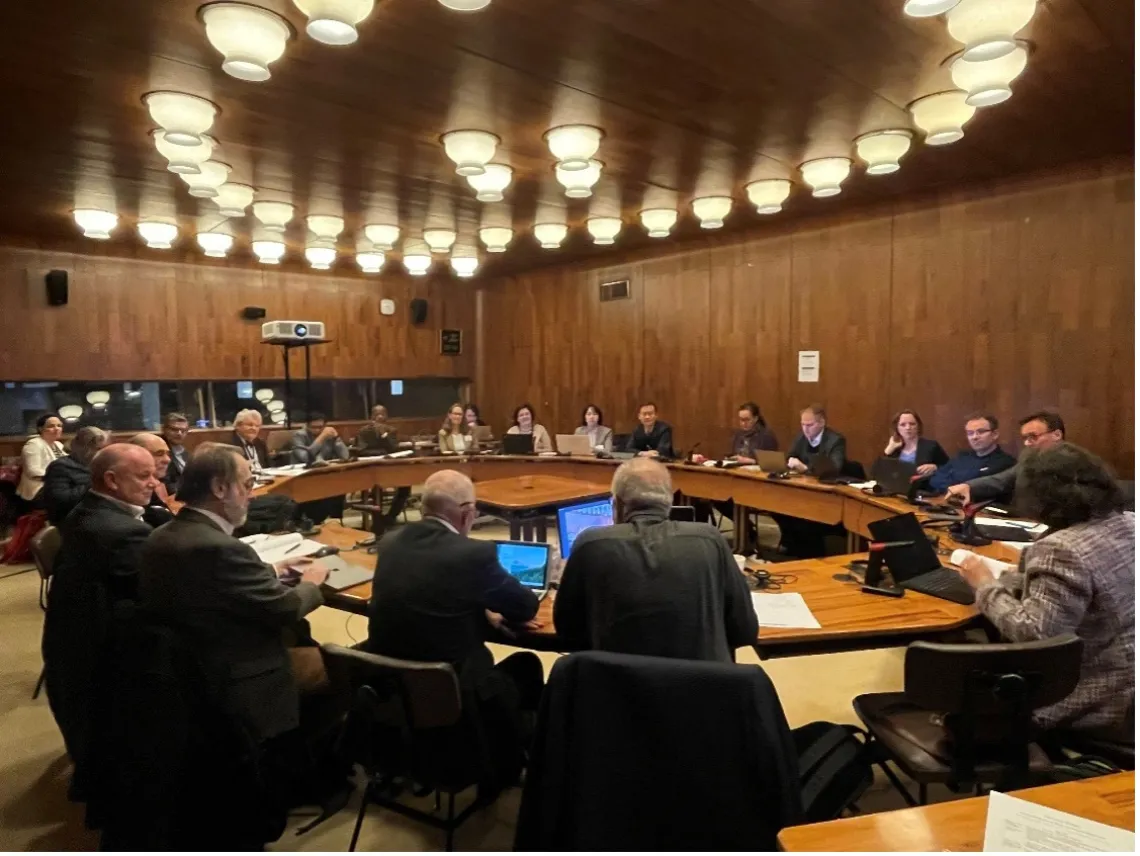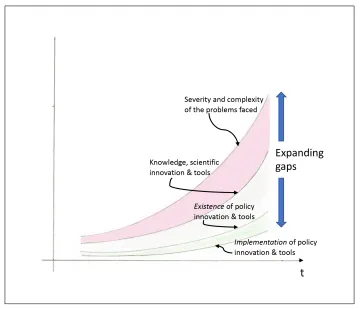“Game-Changer” Report Aims to Close the Gaps Between Science and Policy at the UN 2023 Water Conference
Udall Center Researcher and Former Director Robert Varady is in charge of the effort to produce the most widely circulated of four papers created for the conference.

Bob Varady and other water experts on the UN Water Futures Task Force convened in Paris in January 2023 to discuss the “game-changer” documents to be presented at the UN 2023 Water Conference in March.
Photo by Anil Mishra.
In the year 2000, the United Nations (UN) set out on a mission to achieve by 2015 a series of eight ambitious objectives they called the “United Nations Millennium Development Goals.” These varied in focus and included broad calls to action like “Eradicate extreme hunger and poverty,” “Achieve universal primary education,” and “Ensure environmental sustainability.”
When 2015 rolled around, the UN took another look at these goals and determined that their previous framework had been inadequate in terms of its potential to impact long-term sustainable development on a global scale. As a result, the General Assembly passed a resolution on October 21 of that year (A/RES/70/1) outlining a new set of 17 “Sustainable Development Goals” (SDGs), one of which – SDG6 – called for the Assembly to “Ensure availability and sustainable management of water and sanitation for all.”
It was the first time that the UN had formally recognized a need to take a critical look at the state of the world’s water resources and, in December of 2016, the UN doubled down on this commitment by declaring the period between 2018-2028 the “International Decade for Action of Water for Sustainable Development” (A/RES/71/222).
The need to evaluate progress on SDG6 at the mid-point of the so-called “Decade for Action” was codified in December 2018 as a resolution (A/RES/73/226) calling for a “conference on the midterm comprehensive review of the implementation of the objectives of the International Decade for Action” at the UN headquarters in New York, New York beginning on World Water Day – March 22 – 2023. The March conference will be the first UN-sanctioned conference dedicated to world water issues since a 1977 meeting in Mar del Plata, Argentina.
The “Game-Changer” Report
In preparation for the UN 2023 Water Conference, “[m]ore than 1200 scientists, representatives of Member States, the private sector, multilateral agencies and civil society” met in New York in October 2022 to present “potentially game-changing ideas related to water and the 2030 Agenda for Sustainable Development,” according to a draft of a report being prepared for presentation at the March conference.
The result of that meeting was the proposal of a Science-based Global Water Assessment as a potential “game-changer” with respect to evaluating progress and determining the direction for global action in support of the eight individual targets of SDG6. Two open-consultation meetings of UN agency representatives and water experts were then organized in Paris, France in late 2022 and early 2023 to discuss the preparation of a series of documents intended to be presented at a side event during the conference.
As a member of the UN Water Futures Task Force, Udall Center Research Professor and former Director Robert Varady was at the second Paris convening in January of this year.
Varady is cautious about the use of the term “game-changer” to describe the assessment he and a team of global water experts worked to produce before the conference, but he’s clear on one thing – the longer we wait to take bold action on our global water problems, the harder it will be to solve them.
“There has been a growing gap between what science can do and what the policy world can do,” says Varady, “And instead of shrinking, that gap is getting bigger and that's perceived to be a problem that needs to be solved.”

This chart by Udall Center Research Professor Robert Varady illustrates the growing gaps between our global water problems and what science and policymakers can do to address them.
Robert Varady
Explaining the urgent need to close these gaps, Varady says, is the “basic thesis” of the game-changer papers that he and his task force colleagues were asked to create.
Varady says that scientists have made strides over the last few decades when it comes to identifying the water-related problems that exist on a local level, but that more needs to be done in terms of defining the linkages between these complex issues and determining how to deal with them from a policy standpoint. “This game-changer is phrased as an assessment,” says Varady, “but not an assessment of the problems, because the argument here is that we all know what the problems are. What we need is an assessment of how to deal with them.”
A next logical step toward solving the world’s water woes, the draft of the “game-changer” paper argues, is to find ways to bridge this gap between the latest scientific knowledge and the information policymakers use when creating legislation to address issues around water.
“Science alone cannot solve the issues ahead,” the draft states. “Neither can governmental policies without evidence-based science. A new relation needs to be forged between science and policymaking. Therefore, a new intergovernmental mechanism, with appropriate cooperation with the scientific community between the scientific community and the UN Member States in the validation of results, is urgently needed,” it says.
The two UN water task forces, therefore, were given the assignment to write four total papers before this week’s conference – the basic “game-changer” report, two “blueprints” explaining how to treat the interdependencies and fragmentation of water issues at scale and associated policy questions, and a “glossy,” four-page summary paper explaining the key takeaways from the other three documents.
Varady is chair of the effort to produce the summary paper which will likely be the most widely circulated of the four documents. However, the reception of the concepts in these documents by the UN and its Member States in attendance at the UN 2023 Water Conference remains to be seen.
Update 3/28/23: Check out the full text of the Game Paper Summary here:

